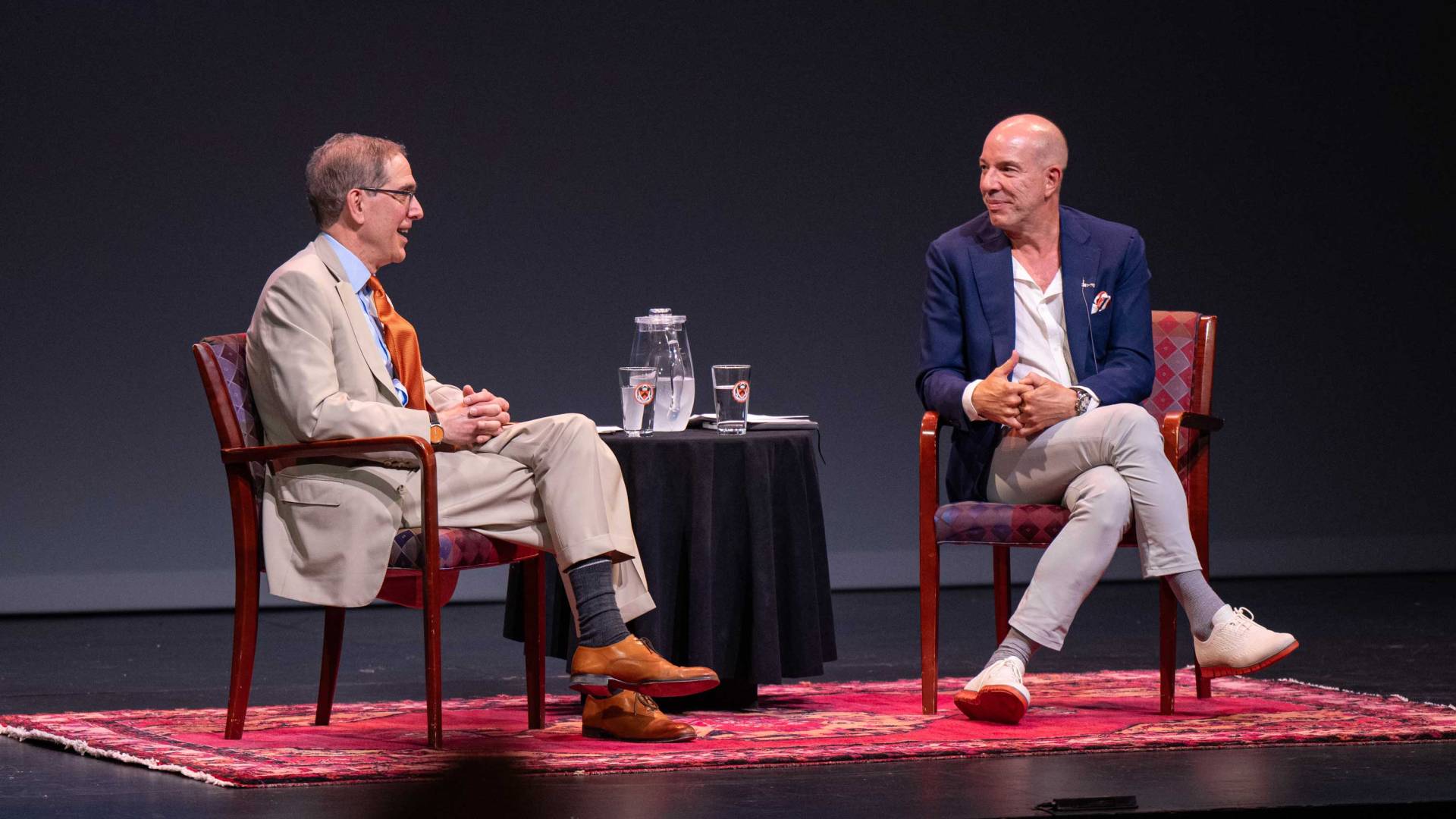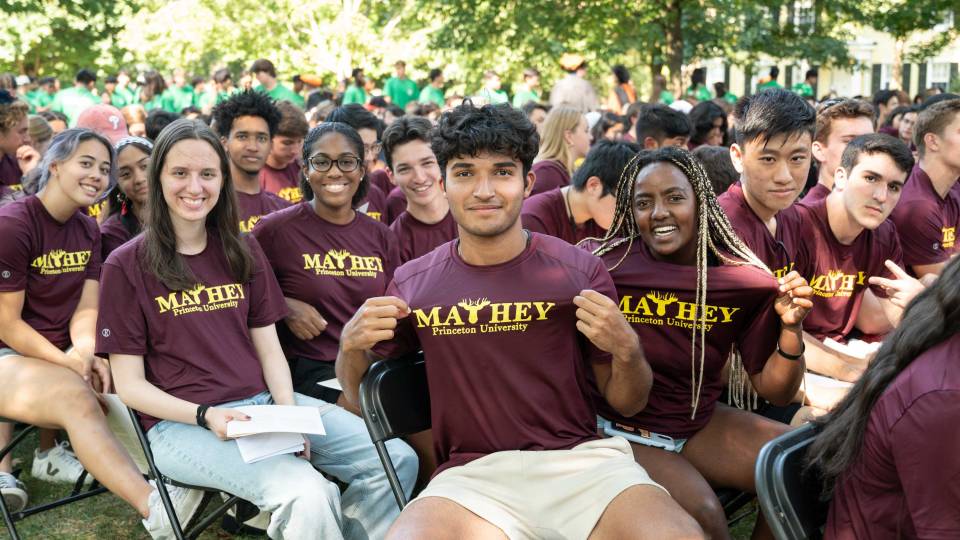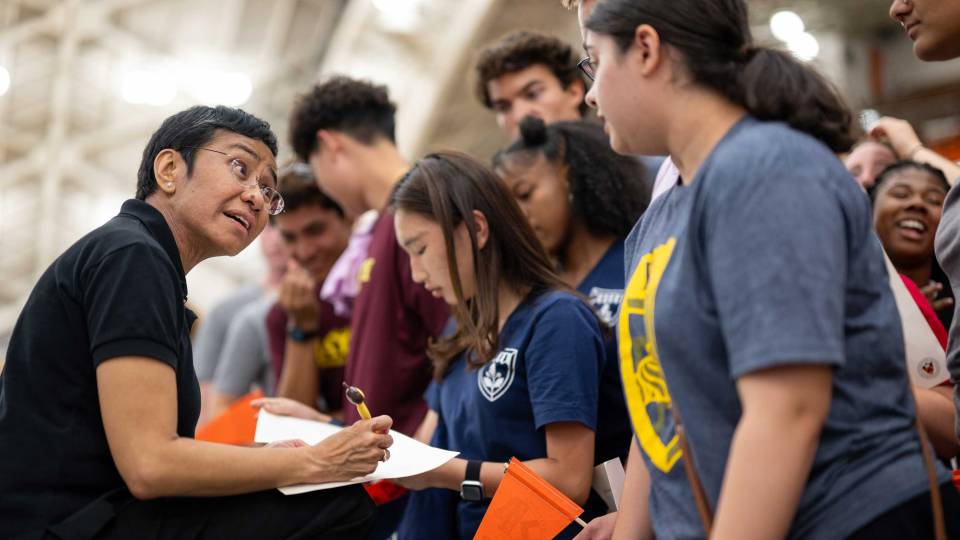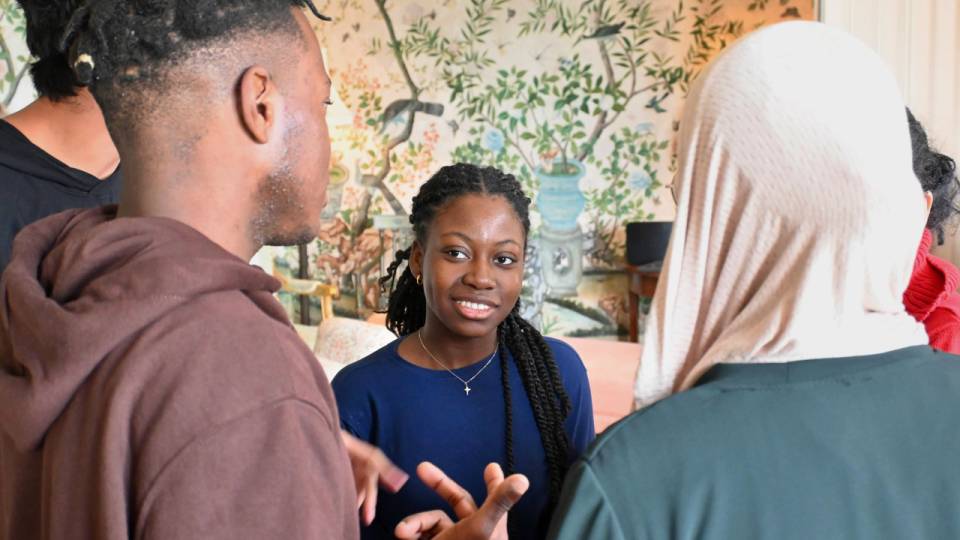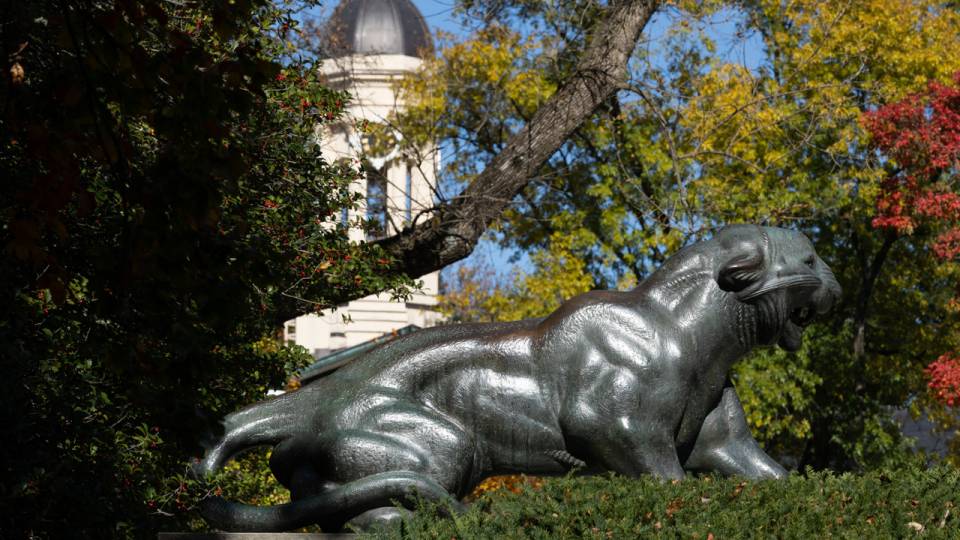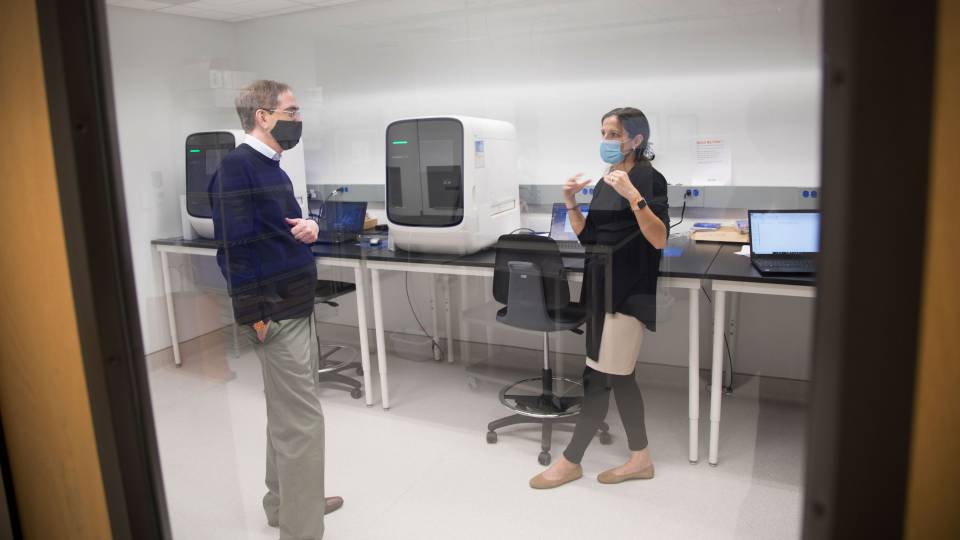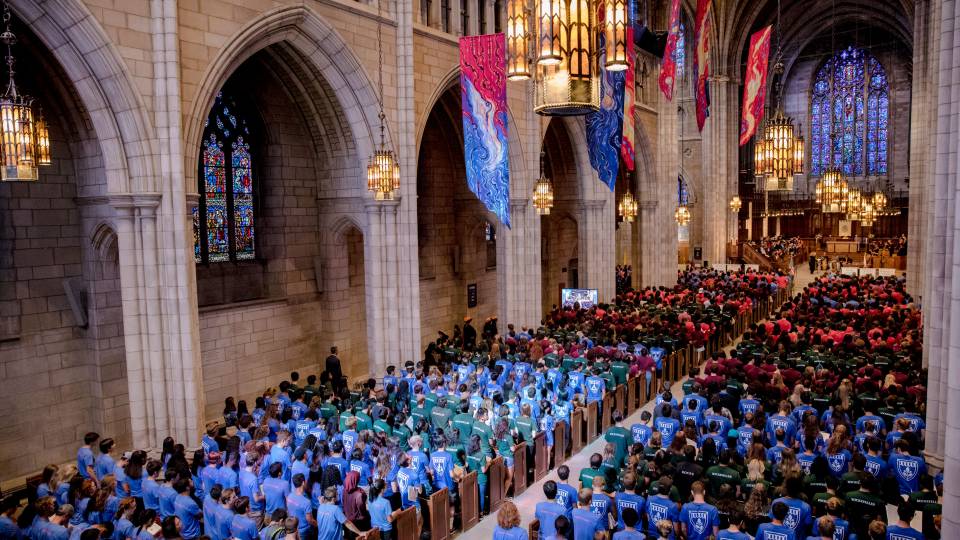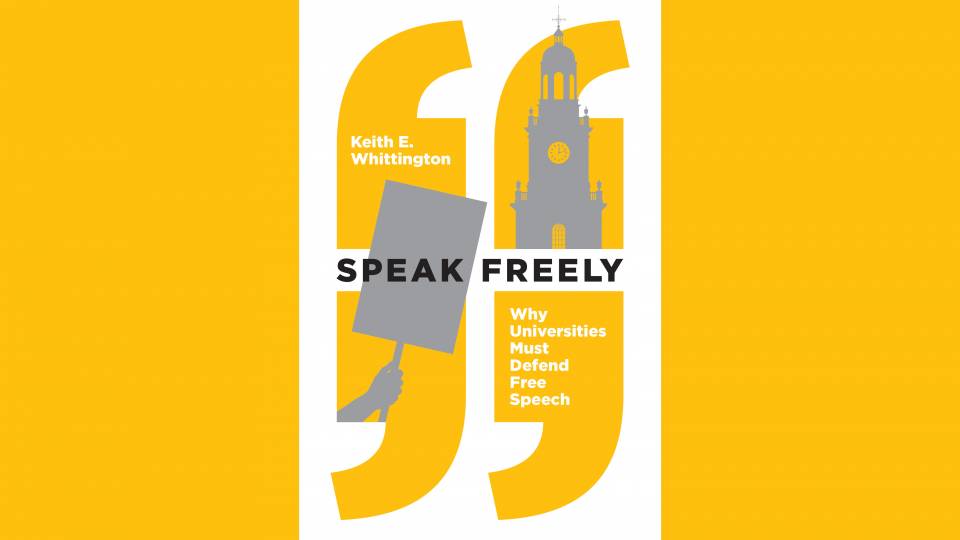As part of Princeton’s Class of 2027 Orientation, President Christopher L. Eisgruber (left) and American Civil Liberties Union Executive Director Anthony Romero discussed the importance of free expression on campus.
Anthony Romero was once a Princeton undergraduate struggling with how to confront hurtful speech he experienced on campus. Today, as executive director of the American Civil Liberties Union, he zealously defends Americans’ right to use that same kind of speech.
Romero traced his journey during an Orientation event on Tuesday for first-year students where he joined President Christopher L. Eisgruber to explore the importance of academic freedom and free expression on campus. The event marked the second consecutive year Eisgruber has led an Orientation session on the topic.
“Why do you care about free speech?” Eisgruber asked Romero, a member of the Class of 1987, on the stage of Matthews Theatre at McCarter Theatre Center, with the Class of 2027 filling the seats beyond.
Romero responded: “I think it’s foundational to personal fulfillment, in terms of figuring out what you think, what you believe in, who you are, who you associate with. I think it’s foundational to a society that allows individuals to be their very best as they define it. I think it’s essential to the workings of democracy.”
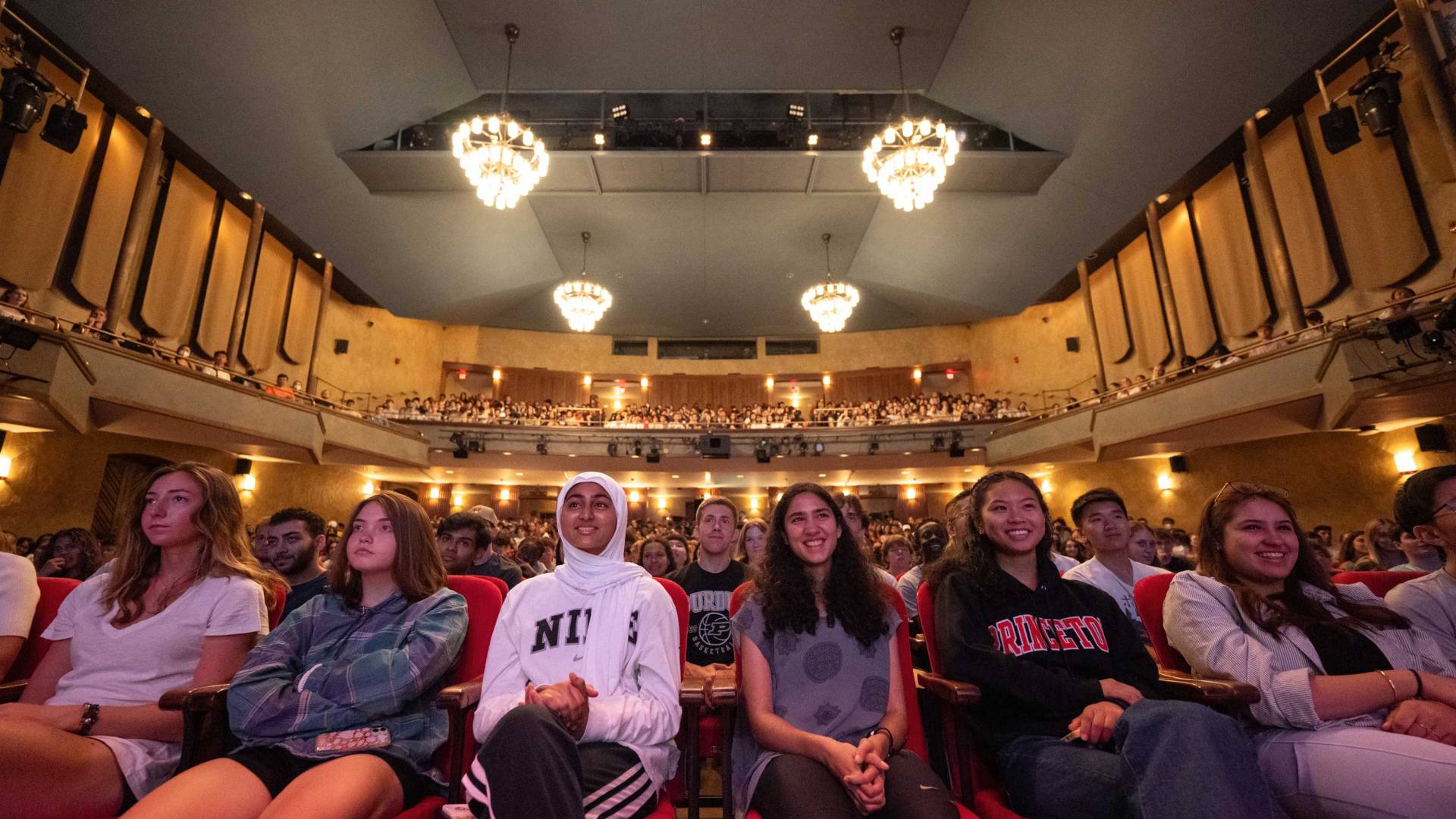
The event was well attended by members of the Class of 2027, who packed the Matthews Theatre at McCarter Theatre Center.
During their hour together, Eisgruber highlighted the University’s Statement on Freedom of Expression from Princeton’s Rights, Rules, Responsibilities, which "guarantees all members of the University community the broadest possible latitude to speak, write, listen, challenge, and learn.”
“It is not the proper role of the University to attempt to shield individuals from ideas and opinions that they find unwelcome, disagreeable or even deeply offensive,” he continued.
The program was introduced by W. Rochelle Calhoun, vice president for campus life, and the conversation preceded by a video about free expression featuring a variety of Princeton voices.
Growing through hard conversations
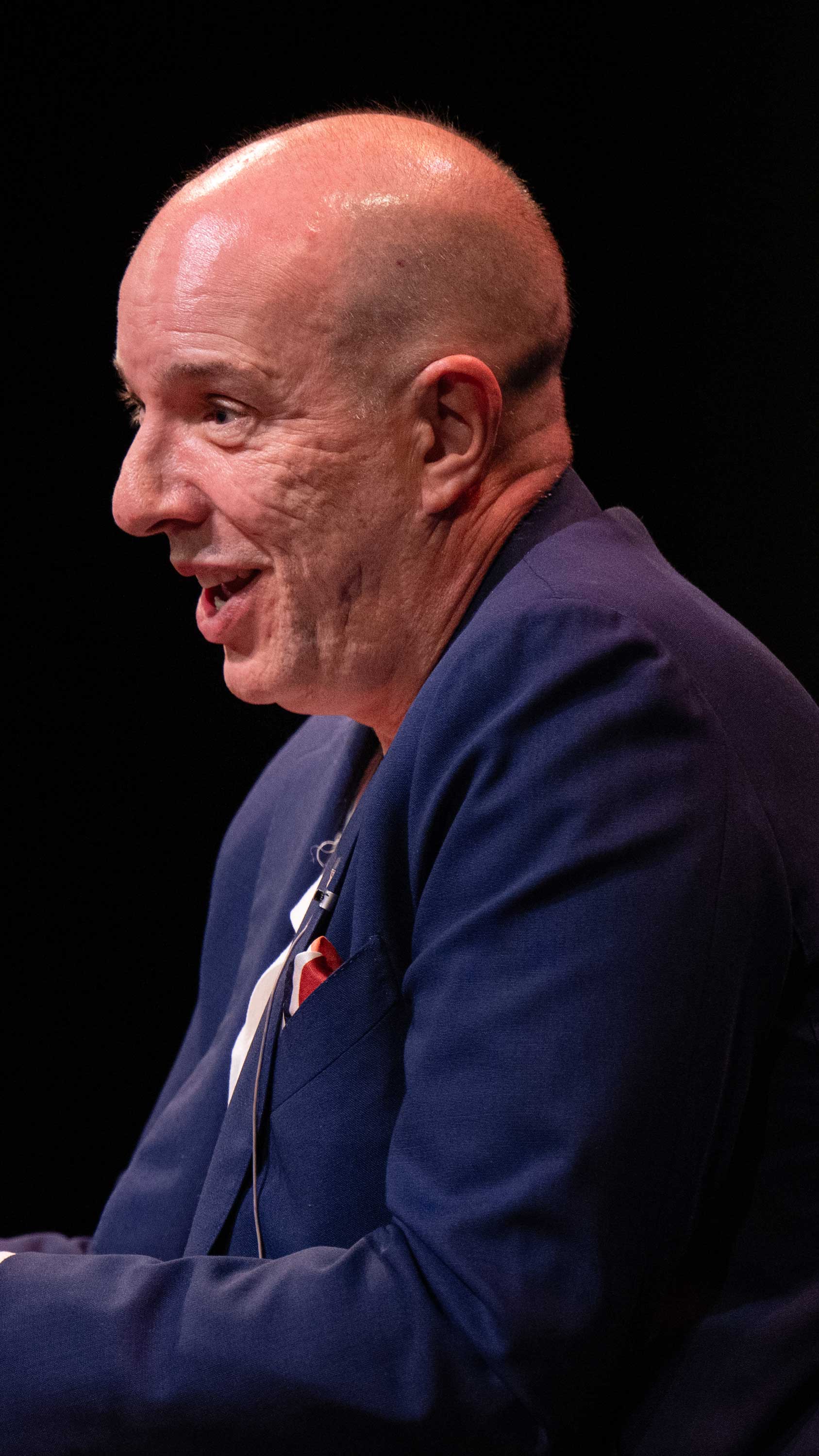
Romero, Class of 1987, recounted difficult conversations he had as an undergraduate at Princeton and how they helped him to grow as an individual.
Romero, who received his bachelor’s degree in the Princeton School of Public and International Affairs and who subsequently graduated from Stanford University Law School, has filed hundreds of legal actions since taking the helm at the ACLU in 2001. Some of those, he said, required defending the rights of people with whom he disagreed.
Romero has visited Princeton several times over the years. In 2019, he received the Woodrow Wilson Award, the University’s highest honor for undergraduate alumni. In his experience as a student, he had to navigate difficult situations, he said, including a profound disagreement with a professor that taught him how to approach tough conversations.
Asking questions is often an effective manner of approaching or confronting unwelcome, disagreeable or offensive speech, Romero said. “I suggest you always ask a bunch of questions: Let me understand where you’re coming from. Why did you say that? Why do you think? … On what basis are you making that determination?” he said. “I think those conversations will [allow you to] grant each other the grace for you to grow and evolve and develop. I was a better, smarter, a fuller human being at the end of four years.”
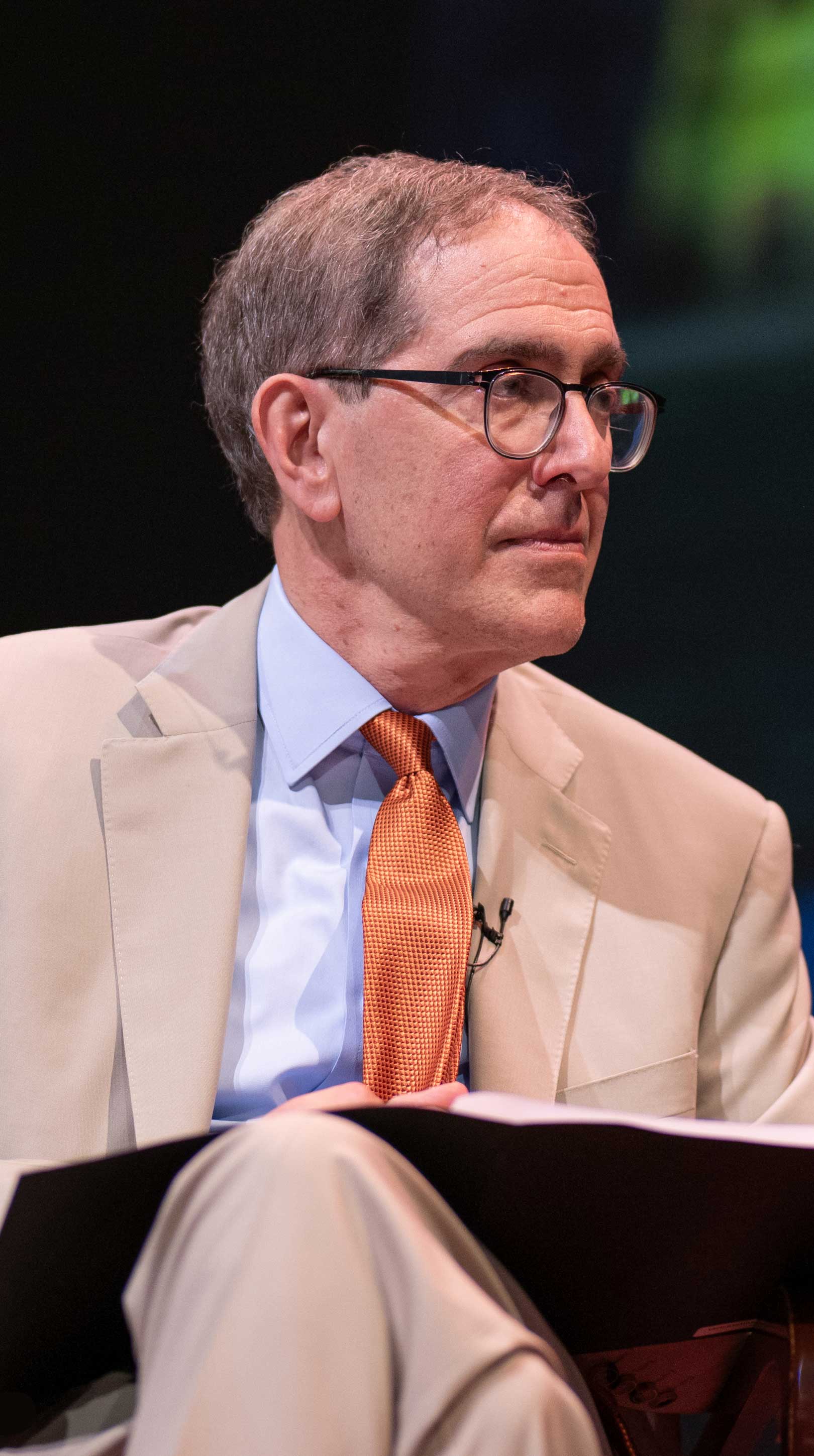
Eisgruber highlighted the University’s Statement on Freedom of Expression, which “guarantees all members of the University community the broadest possible latitude to speak, write, listen, challenge, and learn.”
It’s also helpful to find ways to talk about the things that matter to you and why at other times when the stakes are lower, he said. “You don’t always have to answer in the moment,” he said. “Some of this is better, sometimes, to think about taking a step back and then figure out how you engage in a constructive way.” Romero also suggested students find a supportive group to act as a sounding board.
Eisgruber and Romero took students’ questions, which were submitted via QR code at the event. Among those, one student asked if Romero felt so-called “cancel culture” is a hindrance to free expression.
Romero said the problem with cancelling someone is that “they are not granted the ability to be wrong, to make amends, clarify.”
“I don’t want to be judged by the worst thing I’ve said on the worst day of my life,” Romero said. “I like to think I’m better than that.”
Not only does cancelling discourage speech, but it also discourages productive discussion around even the most offensive ideas, he said. “If people don’t engage the hard issues, then how would we work through our differences?”
Princeton voices on free expression
The event's introductory video featured Jennifer Rexford, University provost and the Gordon Y.S. Wu Professor in Engineering; Eddie Glaude, the James S. McDonnell Distinguished University Professor and professor of African American studies; Morgan Smith, Class of 2021, a young alumni trustee; and Keith Whittington, the William Nelson Cromwell Professor of Politics and professor of politics, whose book “Speak Freely: Why Universities Must Defend Free Speech” was the University’s Pre-read selection in 2018.
All four Princetonians emphasized the need for productive conversations among those who disagree, even profoundly.
Smith said being at Princeton is one of the few times when students will be exposed to so many different people and ideas. She said she also did not take for granted her own ability to express herself freely.
“I’ll never forget participating in my first debate on campus, and I was just in awe of, wow, I can say what’s on my mind because we have this norm in this space of we’re going to be respectful to one another,” she said. “And having that as the baseline allowed us to get into those more difficult conversations.”
Rexford, a computer scientist, noted that researchers engage with each other in discourse all the time — even when it’s not political — and that it’s important for them to disagree constructively. “Even in a field like mine where you think that things should be very absolute because it’s technical, there are still really substantial disagreements about taste, in what kinds of research problems we pick, how we choose to approach them, how we decide when we’re done with the work.”
Whittington said disagreements have sharpened his own ideas. “They help me see the flaws in my own arguments,” he said. “How do I improve my arguments and ideas over time? And what, sometimes, do I even have to reject and realize I was just mistaken and needed to move forward? So I learn the most usually from people who think I’m wrong.”
Said Glaude, “The free exchange of ideas is critical for us to grow into the kinds of human beings, the kinds of persons that democracies require, but all of it, all of that must presuppose the dignity and standing of all of us.”
Supporting a culture of free expression
In 2015, Princeton adopted the Chicago Principles on freedom of expression. And Princeton continues to support a culture of free expression on campus.
In addition to the Orientation sessions for incoming students this year and in 2022, Princeton has invited PEN America, a worldwide champion for free expression, to conduct workshops about free expression and academic freedom on campus.
A workshop for Campus Life staff was held in June 2023, and additional PEN America-led events open to faculty and students are planned during the 2023-24 academic year.
